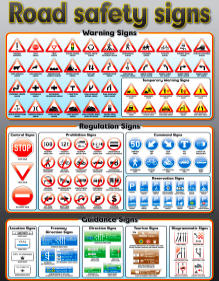
Now the department is getting its act together and making an effort to wipe out fraud and corruption at the very beginning of the cycle – the learner's licence stage. For taking this very necessary step, the department is our hero of the week.
It’s modernising its system for learner licences, swapping pen and paper for a computer, revealed Gauteng MEC for transport Ismail Vadi last week.
Not all centres in the province will have the new system straight away. The ones that do are located at Mabopane, Kliptown, Randburg, Themba, Meyerton, Akasia and Xavier Junction. The technology will be rolled out to the other 26 centres in the province in due course.
Other centres in South Africa that are using the system include, among others, Giyani Traffic Station in Limpopo, Mothibistad Traffic Department in the Northern Cape, and the Eastridge Driver's Licence Testing Centre at Mitchells Plain in the Western Cape.
In August 2013, when the computerised system at Giyani was unveiled, the province’s MEC for roads and transport, Lehlogonolo Masoga, said: “It is common knowledge that there are two options that people use to obtain a learner’s license. Option one, the applicants study hard and pass the test. Option two, applicants pay a bribe and get a license.”
He said that a proper theoretical knowledge of traffic regulations, road signs and vehicle control systems is a crucial component of safe driving, and that an ignorant driver on the road poses a risk to themselves and to others.
“Foremost in our drive, is to use the system as a means of eliminating corruption at the very first stage of the licensing process,” said Masoga.
To date, Corruption Watch has received 36 reports alleging illegal activities relating to learner’s and driver’s licences. Of these, 52% involve bribery, 19.4% involve abuse of power by a government official, and 28.6% of reports are classified as unknown.
A new way of taking the test
Learners are identified digitally through retina scanning, photography, thumb-printing and other techniques, when they arrive at the testing centre to book their test. On the day of the test these characteristics are used to verify the identity of the applicant.
The test is no longer written manually; rather a computer with a touch screen generates questions in a graphic format, which the applicant answers merely by touching the correct image. This user-friendly system marks the answers as the test progresses, and produces a result instantly.
The candidate can’t pass the test without answering all the questions, which are available in all official languages.
In addition, tests are randomised from a pool of 1 000 questions, which means that previous corrupt activities such as preparing answers in advance, because some driving schools had gained access to the test books, would no longer be possible.
The electronic system carries extra benefits – it’s kinder to the operations budget as it cuts out the need to buy books, pens, pencils, erasers and marking stencils. It also frees up officials to be able to deal more attentively and promptly with applicants' other needs.
The previous system was easily tampered with, noted Vadi.
"You came here almost briefed and knowing the answers by heart," he said. "But now we have a computerised system with questions which are processed automatically, so the examiner or any other official will not be aware what the computer will generate as a question."
Better drivers and less corruption
Hopes are high that the new system will not only eradicate fraud and corruption, but will result in a more skilled driver on South African roads. At the Xavier Junction Licence and Testing Centre in Ormonde, said Vadi, the pass rate has decreased notably – out of around 1 400 candidates every day, all but a handful would pass – now about 300 a day make it, since the launch of the system.
The lower pass rate indicates that only competent candidates were getting through, added Vadi. Previously, learner drivers could buy a guarantee that they would pass the test – whether they knew the work or not.
Other forms of corruption include someone else – often an employee – filling in the answers on the learner’s behalf, and the examiner overlooking wrong answers or allowing applicants to copy from each other.
It doesn't end with the learner's licence. On the day of the driving test, corruption may include arranging for the compulsory eye test to be bypassed, an official arranging an early date in the case of retesting, thereby allowing the learner to jump the queue, and the examiner falsely failing the learner in the hopes of being offered a bribe.
For these services the asking rate is as low as R350 for a favourable date, one that means the applicant doesn’t have to wait for weeks, and up to R3 500 and more for a guaranteed pass. The latter is known as a “Stay Soft” and means that the traffic officer will warn the driver about mistakes, tell him or her how to correct them, and essentially guide the driver every step of the way.
While learner drivers admit that they too become guilty of corruption by engaging in these practices, many claim that the current system leaves them little choice. For those who depend on being able to drive to earn a livelihood, the situation is more desperate.
A young woman interviewed for a Groundup investigation into corruption at the Khayelitsha Traffic Department, said that she had obtained her learner’s licence, but she would “never take my driver’s licence at the Khayelitsha department because I know they will fail me unless I pay a bribe”.
"The new system has helped to reduce fraud and corruption because nobody can manipulate it any more," Vadi said.
Corruption exposed
In the licence-related reports submitted to Corruption Watch, Gauteng was the province drawing the most complaints, at 60%. The other provinces were way behind, none of them going over 9%. Provincial government was implicated in 80% of reports, and local government in 14.3%, with 5.7% marked as unknown.
A reporter wrote: “I arived there and was told that I could only write in three weeks time, I was then told that if I paid R450 I could rite on the day a prefered… I did so and recived a date of the 17th of september , I was then told that for R3000 I could do my test and would pass.. This is called coke money, I arrived the day to do the test and was told that there were officials doing a inspection and had to come back the next day to do the test, I arrived the next day and was told that I had to book again cause the system wouldt allow me to do the test, I then asked if I could not do it on the day cause I was told to come back and I was told no I must book again.”
A parent reported to Corruption Watch: “I'm reporting this on behalf of my son. He has been for his drivers license test twice (in White River) and has failed both times. The first time he was warned by the Driver Training School Instructor, prior to the test, that he might be asked for a bribe, he was also informed as to some of the slang terminology that would indicate the amount is too low (if he decided to counter the offer) ..eg. ‘you must pull up your socks’.”
The parent noted that the child was not asked for a bribe the first time he failed, but the second time he failed the invigilator conferred with the driving instructor, who informed the learner that “the only way he was going to get his drivers would be by the paying of the R1500 to the Testing Official”.
An honest driving instructor, submitting a report to Corruption Watch, claimed that his school was victimised because he refuses to take part in corrupt activities. “Some of our customers are failed for no apparent reason just because they didn't pay what is required, it is so sad to see people we trained so hard to be competent who get failed whilst people who don't deserve to be authorised get passed. I sometime go to these stations to observe how others are tested and it is amazing what money can do to get what you want”.
